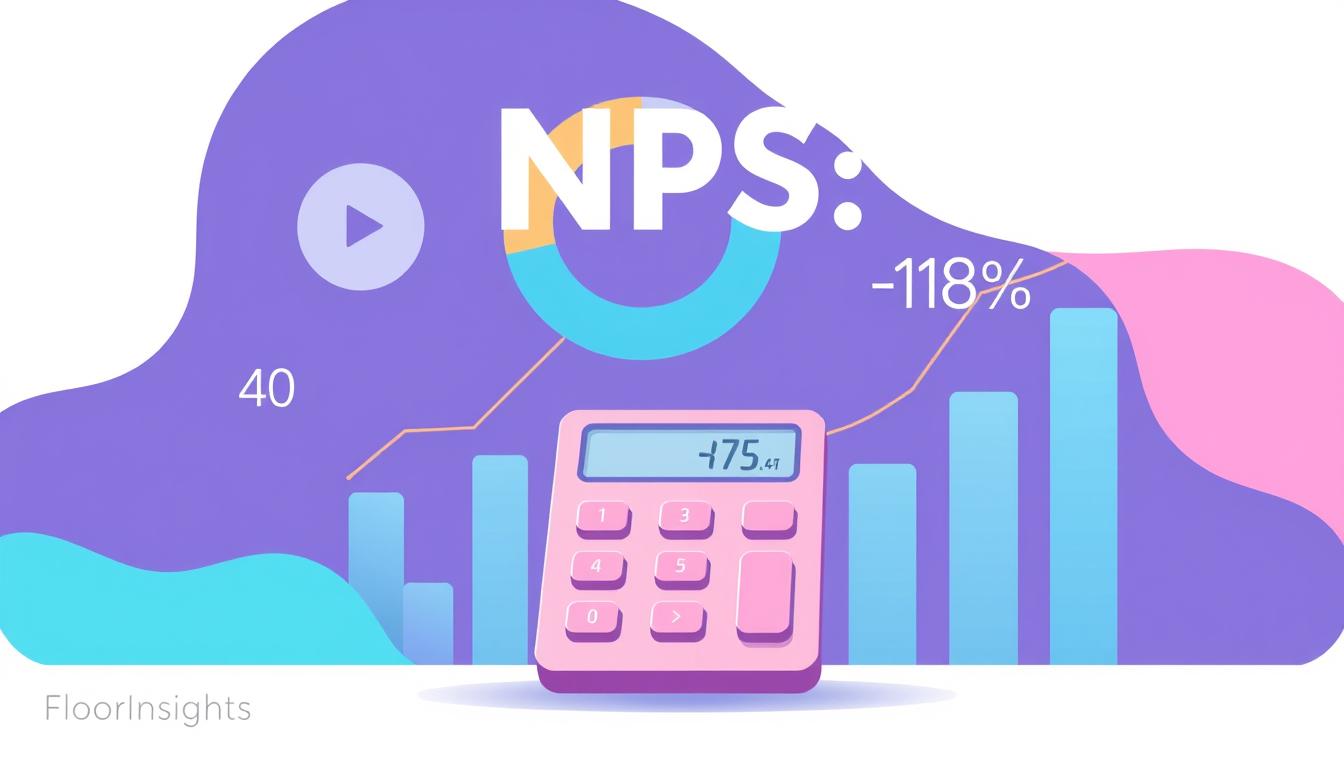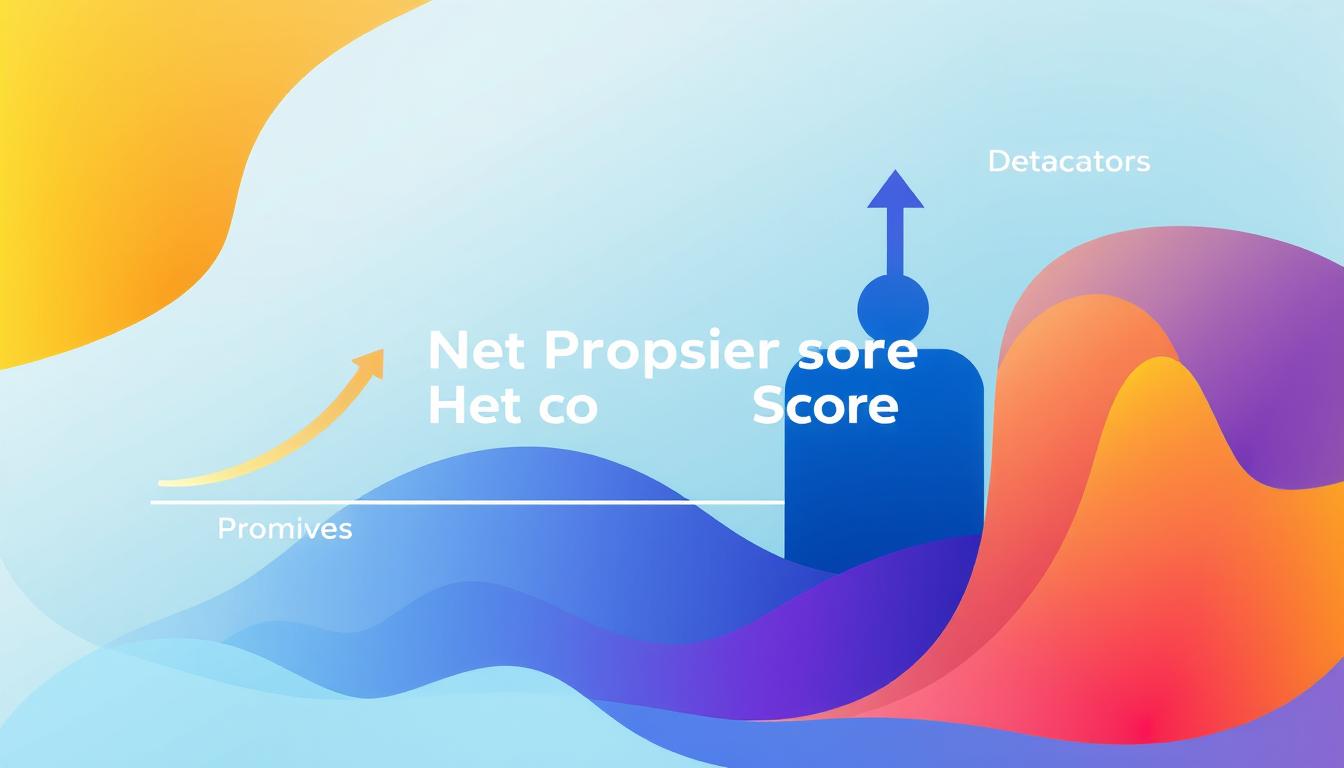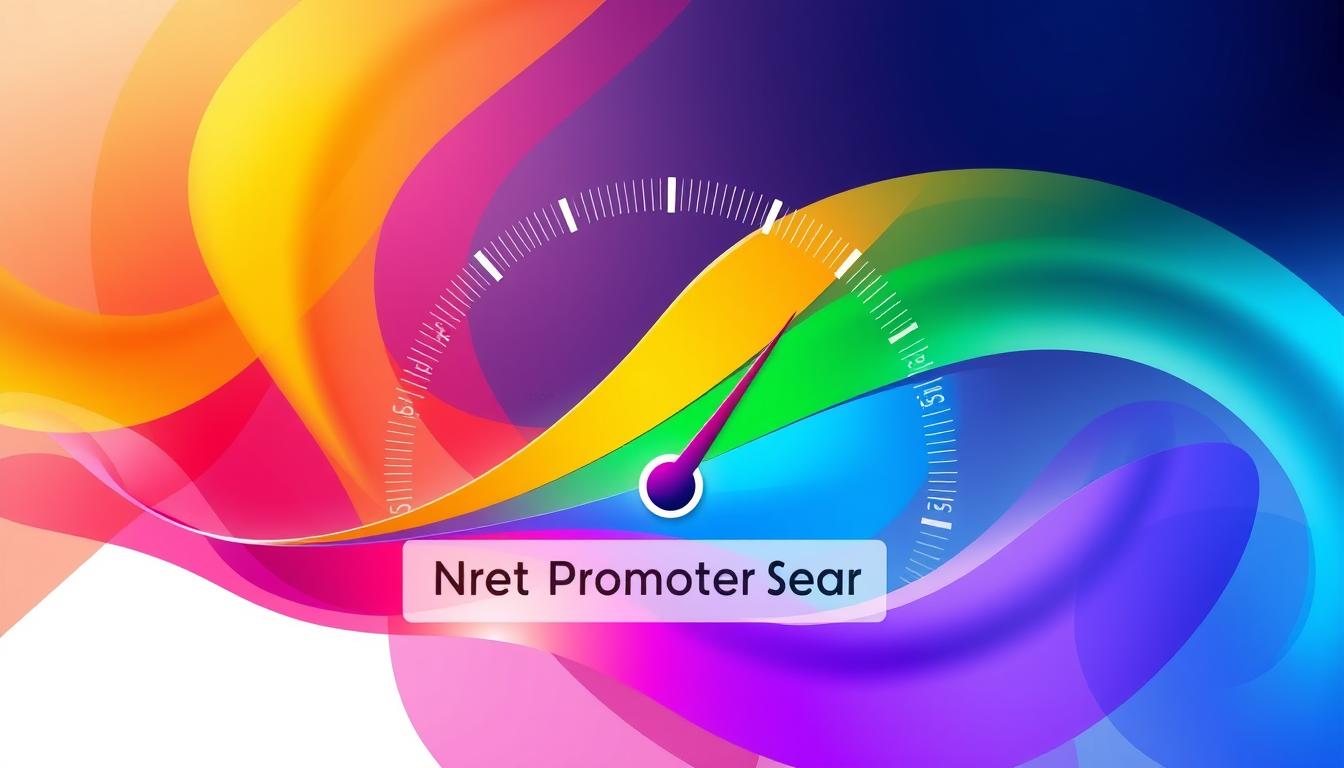In the realm of customer feedback, the Net Promoter Score (NPS) represents a powerful tool for gauging customer loyalty. However, as we delve into NPS ethics and data privacy, it becomes vital to confront the ethical concerns associated with NPS survey design. By ensuring our survey processes align with ethical practices, we can not only gather indispensable insights but also foster trust among our client base. Recognizing these ethical imperatives from the outset can significantly influence the reliability of our customer insights and enhance our reputation in the marketplace. Together, we will explore strategies to create robust survey frameworks that prioritize data privacy while effectively capturing valuable feedback.
Key Takeaways
- The Net Promoter Score is crucial for evaluating customer loyalty.
- Addressing NPS ethics enhances the credibility of survey results.
- Data privacy regulations must be adhered to in survey design.
- Ethical practices can lead to better customer relationships.
- Establishing transparency builds trust with respondents.
Introduction to NPS Surveys and Their Importance
NPS surveys represent a cornerstone of understanding customer relationships in the modern business environment. These surveys serve as a vital tool for gauging customer loyalty through a straightforward question: *How likely are you to recommend our services or products to others?* This singular query encapsulates the essence of customer satisfaction survey efforts.
The NPS survey importance lies in its ability to provide a clear metric for assessing customer sentiment. Organizations can easily collect, analyze, and act on the feedback received. By doing so, we can pinpoint areas that require enhancements, ultimately improving not just the services or products but the overall customer experiences as well.
Implementing an effective guest satisfaction survey allows businesses to foster deeper customer engagement, leading to increased satisfaction and loyalty. Through the insights gained from these surveys, organizations can adapt and refine their offerings, thus remaining competitive and responsive to customer needs.
Understanding the Net Promoter Score
The Net Promoter Score (NPS) serves as a valuable metric for businesses aiming to gauge customer loyalty and satisfaction. By grasping the fundamentals of understanding net promoter score, we can better appreciate its role in shaping customer experiences and driving strategic improvements.
Defining Net Promoter Score
NPS is derived from a simple yet powerful question posed to customers: “On a scale from 0 to 10, how likely are you to recommend our product or service to a friend or colleague?” The NPS score calculation involves subtracting the percentage of detractors (those who rate between 0-6) from the percentage of promoters (those who rate 9-10). This formula results in a score that ranges from -100 to 100, encapsulating the overall sentiment towards a brand.
How NPS Influences Customer Insights
Utilizing frequent NPS surveys can yield profound insights into customer opinions and preferences. By assessing NPS, we can identify areas of excellence alongside potential gaps in our services. This understanding plays a crucial role in our efforts to increase customer satisfaction, enabling us to make informed decisions that directly reflect our customers’ needs and expectations.
| Rating | Category | Percentage |
|---|---|---|
| 0-6 | Detractors | 20% |
| 7-8 | Passives | 30% |
| 9-10 | Promoters | 50% |
Through the adoption of NPS as a key performance indicator, we create pathways for continuous improvement, ensuring that our customer service strategies remain aligned with a dynamic marketplace.
Ethical Considerations in NPS Survey Design
When designing NPS surveys, we must integrate ethical considerations to ensure that our approach aligns with the values of transparency and trust. Ethically collecting customer feedback is paramount to building lasting relationships. Clear communication about how we utilize data not only fosters trust but also strengthens customer loyalty.
One essential strategy involves avoiding leading questions that may skew responses. Crafting well-designed survey questions helps us gather genuine insights. This aspect of ethical NPS practices guarantees that we receive accurate customer insights that reflect true experiences and opinions.
Another critical element lies in ensuring that participation is voluntary. Customers should feel free to engage without feeling pressured. By establishing this environment, we can honor ethical practices in data collection, paving the way for honest and valuable responses.
Additionally, we should regularly revisit our methods to safeguard against unintentional biases. This ongoing evaluation reinforces our commitment to ethical NPS practices and helps us adapt to evolving customer expectations and ethical standards.
Data Privacy Regulations for NPS Surveys
Implementing NPS surveys necessitates careful navigation through data privacy regulations. Understanding the implications of these regulations, particularly the General Data Protection Regulation (GDPR), is essential for organizations operating in India and globally. GDPR compliance represents a crucial aspect of conducting ethical NPS surveys and ensures robust customer data protection.
Understanding GDPR and Other Regulations
The GDPR establishes a framework specifically aimed at protecting personal data throughout Europe and applies to organizations worldwide that handle EU residents’ data. We recognize several key components of GDPR compliance essential for our NPS surveys:
- Data Minimization: Collect only the data necessary for the survey’s purpose.
- Purpose Limitation: Clearly define and communicate the purpose of data collection.
- Explicit Consent: Obtain clear and informed consent from participants before collecting data.
Key Principles of Data Privacy
Adhering to these data privacy regulations not only fulfills our legal obligations but fosters trust among our customers. We should focus on the following principles:
| Principle | Description |
|---|---|
| Transparency | Ensure participants are aware of how their data will be used. |
| Accountability | Organizations must be able to demonstrate compliance with data privacy regulations. |
| Data Security | Implement strong measures to protect customer data from breaches. |
| Data Rights | Respect and facilitate participants’ rights to access, modify, or delete their data. |
Best Practices for Ethical NPS Survey Design
When we consider the complexities involved in ethical NPS survey design, adopting best practices becomes essential. These practices not only ensure compliance with regulations but also enhance the credibility of the data collected. A transparent survey process and informed consent practices contribute significantly to these efforts.
Creating Transparent Survey Processes
A transparent survey process forms the foundation of our ethical approach. Participants deserve to know the purpose of the survey, how their data will be utilized, and the measures taken to ensure their anonymity. This clarity builds trust and encourages honest feedback, ultimately enhancing the quality of insights derived from the survey. Key elements of a transparent process include:
- Clear communication regarding the survey’s objectives.
- Inclusive information on data management and privacy safeguards.
- Steps taken to protect participant anonymity and confidentiality.
Informed Consent in NPS Surveys
Informed consent practices play a vital role in ethical NPS survey design. Obtaining explicit consent involves providing participants with all relevant details prior to collecting data. This ensures that respondents understand their participation is voluntary and that they can withdraw at any time without repercussion. Effective strategies include:
- Presenting a detailed consent form that outlines participant rights.
- Allowing questions prior to data collection for clarity.
- Ensuring participants confirm their understanding and acceptance.

Leveraging AI for Customer Insights
In the realm of customer experience, employing AI for customer insights has transformed our approach to understanding feedback. By harnessing advanced customer insights AI, we can analyze vast quantities of data much quicker than traditional methods allow. This enables us to discern patterns and trends that enhance our NPS analysis, making it a valuable tool for identifying areas of improvement.
Benefits of AI in NPS Analysis
Utilizing AI brings multiple advantages to NPS analysis:
- Speed: AI processes large datasets efficiently, allowing us to respond rapidly to customer feedback.
- Precision: Enhanced algorithms improve the accuracy of insights drawn from survey data.
- Predictive Capability: AI systems can forecast future trends based on historical data, supporting proactive decision-making.
Mitigating Bias with AI Tools
Addressing bias in survey responses is crucial for obtaining a holistic view of customer sentiment. We can leverage AI tools for bias mitigation, ensuring our NPS findings reflect diverse customer perspectives. These tools assist us in identifying skewed data and adjusting our analyses accordingly, leading to more representative insights. Ultimately, integrating AI into our analytical processes empowers us to enhance our understanding of customer satisfaction.
Ensuring Anonymity and Confidentiality
In our efforts to gather valuable insights through NPS surveys, we must prioritize the principles of anonymity in NPS surveys and the confidentiality in customer feedback. These principles serve as the foundation for trust, encouraging customers to share genuine opinions without fear of identification or repercussions. Protecting data is not just a legal requirement; it represents our ethical obligation to our participants.
To enhance these essential aspects, we can implement several practical strategies:
- Data Aggregation: Utilize aggregated data which prevents the identification of individual responses, ensuring the anonymity of our participants.
- Unique Identifiers: Assign unique identifiers rather than using names, maintaining participant confidentiality while allowing us to analyze trends over time.
- Secure Data Storage: Apply advanced security measures for data storage and transmission, emphasizing our commitment to data protection.
- Clear Reporting Guidelines: When sharing results, establish guidelines that prevent disclosure of any identifiable information related to individual responses.
- Transparency: Inform participants about how their data will be used and the measures taken to ensure their anonymity and confidentiality.
Implementing these strategies not only fosters trust among our respondents but also leads to more candid feedback. By actively safeguarding their privacy, we enhance the reliability of the insights derived from NPS surveys, contributing to more accurate customer insights that aid in our decision-making processes.
| Strategy | Description | Benefit |
|---|---|---|
| Data Aggregation | Compiling survey responses into larger groups. | Protects participant identities. |
| Unique Identifiers | Using codes instead of names for tracking. | Maintains participant confidentiality. |
| Secure Data Storage | Employing encryption and secure servers. | Enhances data protection controls. |
| Clear Reporting Guidelines | Establishing rules for sharing insights. | Avoids exposure of identifiable information. |
| Transparency | Providing participants with clear usage policies. | Builds trust and encourages participation. |
Improve Customer Satisfaction Through Ethical Practices
In our pursuit of enhancing customer relationships, we recognize the significant role that ethical practices in NPS play. By adopting these practices, we establish a framework that not only prioritizes customer feedback but also aligns with their expectations for transparency and integrity.
Linking NPS to Customer Experience
Linking NPS to customer experience is crucial in identifying areas that require improvement. When customers see that their feedback translates into actionable changes, it fosters trust and loyalty. We can utilize NPS scores to pinpoint specific aspects of the customer journey that directly impact satisfaction levels. This connection ultimately enables us to tailor our services more effectively, thereby driving improvements that resonate with our customers.
Improving CSAT Using Ethical Insights
Utilizing ethical insights gathered from NPS surveys empowers us to make informed decisions that lead to substantial CSAT improvement. By respecting our customers’ opinions and acting upon their suggestions, we create a cycle of positive reinforcement. This continuous feedback loop not only enhances customer satisfaction but also strengthens our brand’s reputation in the market.
| Ethical Practices | Impact on NPS | Resulting CSAT Improvement |
|---|---|---|
| Transparent feedback channels | Increased response rates | Higher satisfaction scores |
| Informed consent procedures | Stronger trust | Improved customer loyalty |
| Acting on feedback | Enhanced NPS | Long-term relationships |
Addressing Potential Misuse of NPS Data
As we explore the potential misuse of NPS data, it’s essential to identify the associated risks in data utilization. Many organizations may inadvertently neglect vital considerations when handling this sensitive information. Recognizing these risks helps us lay the groundwork for necessary precautions and safeguards.
Identifying Risks in Data Utilization
Misuse of NPS data can emerge from several factors, including:
- Internal biases that affect interpretation.
- Unauthorized access to confidential information.
- Misinterpretation of results due to lack of context.
Each of these factors poses significant risks in data utilization, potentially leading to incorrect assumptions about customer sentiment and engagement.
Creating Safeguards Against Misuse
To combat these risks, we advocate for implementing data security safeguards. Key measures include:
- Enhancing encryption methods to protect data at rest and in transit.
- Providing comprehensive employee training on ethical data handling practices.
- Conducting regular audits for compliance with established data protection protocols.
By prioritizing these security measures, we commit to safeguarding NPS data, thereby fostering transparency and trust with our customers.
Conclusion
In summary, addressing ethical concerns in NPS survey design is crucial for us to build trust while obtaining valuable customer insights. Throughout this article, we have emphasized the essential role that transparency and informed consent play in ethical NPS practices, as well as the impact of data privacy regulations on shaping our methodologies. As we strive for excellence in our outreach, we must remember that these elements not only protect our customers but also enhance our reputation as a responsible brand.
By adopting best practices, including leveraging AI and other innovative tools, we can guarantee that our NPS surveys produce actionable insights. This approach allows us to focus on improving customer insights and enhancing customer satisfaction. Moreover, by prioritizing ethical data usage in our processes, we ensure compliance with industry standards while positioning our brand favorably in the eyes of our clientele.
Ultimately, when we emphasize ethical principles in our NPS practices, we create an environment conducive to trust and loyalty. As we move forward, let us commit to continually refining our approach, fostering a culture of accountability, and delivering unparalleled value to our customers.
FAQ
What is the importance of NPS in understanding customer loyalty?
The Net Promoter Score (NPS) plays a crucial role in assessing customer loyalty by measuring how likely customers are to recommend our products or services. A high NPS indicates that our customers are promoters who will contribute to positive word-of-mouth and repeat business, which can significantly impact our brand’s reputation and growth.
How do we calculate the NPS score?
To calculate the NPS score, we subtract the percentage of detractors (customers who rate us between 0-6) from the percentage of promoters (those who give a rating between 9-10). The final score can range from -100 to 100, providing us with a clear overview of our overall customer sentiment.
What ethical practices should we follow when conducting NPS surveys?
Ethical practices in NPS survey design include ensuring transparency about data usage, obtaining informed consent from participants, and avoiding leading questions. By prioritizing these practices, we maintain trust with our customers while obtaining reliable insights that inform our strategy.
How can AI assist us in gathering customer insights from NPS surveys?
AI can enhance our NPS analysis by processing large amounts of feedback efficiently, identifying trends and patterns, and mitigating bias in responses. Utilizing AI tools allows us to derive deeper, more comprehensive insights that can lead to improved customer satisfaction and loyalty.
Why is data privacy significant when conducting NPS surveys?
Data privacy is vital to protect customers’ personal information and maintain their trust. Adhering to regulations like GDPR and implementing robust data security measures help us ensure that customer data is handled responsibly and ethically, which can enhance our brand credibility.
How can we improve customer satisfaction using insights from NPS surveys?
What are the risks associated with the misuse of NPS data?
Potential risks of NPS data misuse include internal biases, unauthorized access to data, and misinterpretation of survey results. To mitigate these risks, we need to implement strict data security safeguards, conduct regular employee training on ethical data handling, and perform audits to ensure compliance.






